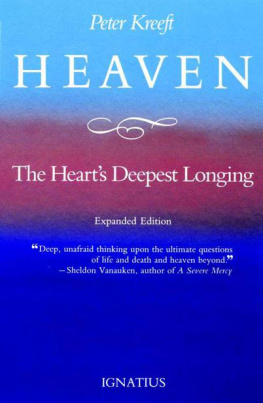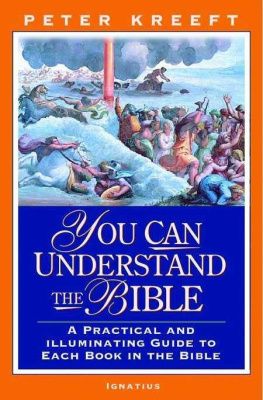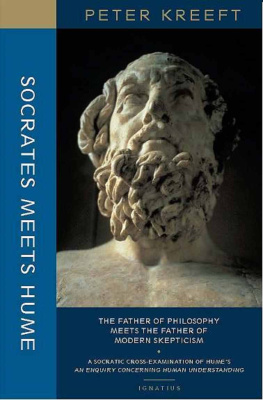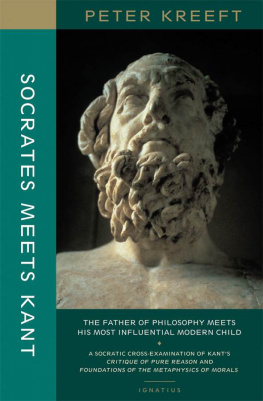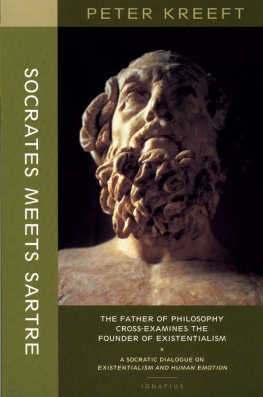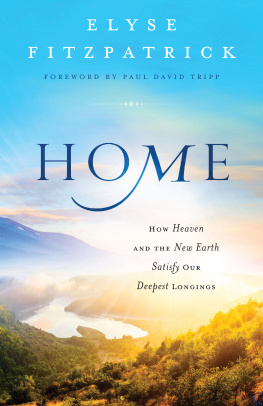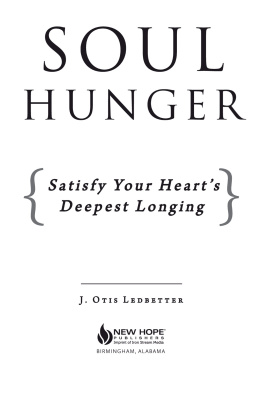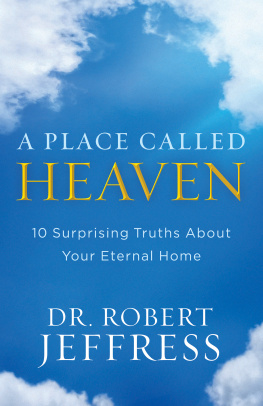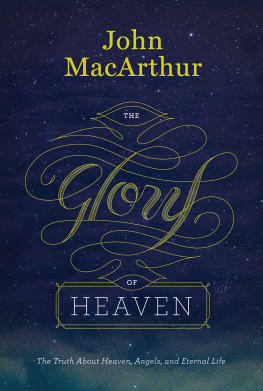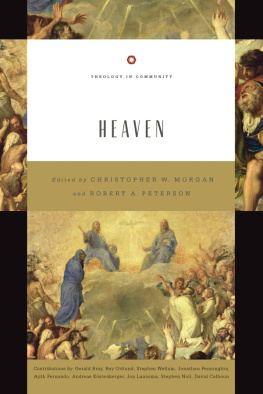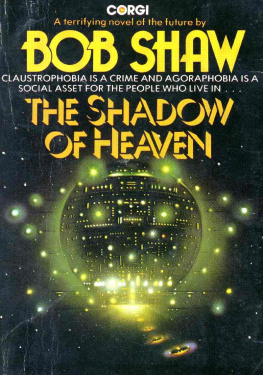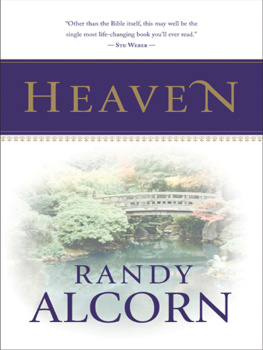Peter Kreeft - Heaven, the Heart’s Deepest Longing
Here you can read online Peter Kreeft - Heaven, the Heart’s Deepest Longing full text of the book (entire story) in english for free. Download pdf and epub, get meaning, cover and reviews about this ebook. year: 1989, publisher: Ignatius Press, genre: Religion. Description of the work, (preface) as well as reviews are available. Best literature library LitArk.com created for fans of good reading and offers a wide selection of genres:
Romance novel
Science fiction
Adventure
Detective
Science
History
Home and family
Prose
Art
Politics
Computer
Non-fiction
Religion
Business
Children
Humor
Choose a favorite category and find really read worthwhile books. Enjoy immersion in the world of imagination, feel the emotions of the characters or learn something new for yourself, make an fascinating discovery.
- Book:Heaven, the Heart’s Deepest Longing
- Author:
- Publisher:Ignatius Press
- Genre:
- Year:1989
- Rating:5 / 5
- Favourites:Add to favourites
- Your mark:
- 100
- 1
- 2
- 3
- 4
- 5
Heaven, the Heart’s Deepest Longing: summary, description and annotation
We offer to read an annotation, description, summary or preface (depends on what the author of the book "Heaven, the Heart’s Deepest Longing" wrote himself). If you haven't found the necessary information about the book — write in the comments, we will try to find it.
Peter Kreeft: author's other books
Who wrote Heaven, the Heart’s Deepest Longing? Find out the surname, the name of the author of the book and a list of all author's works by series.
Heaven, the Heart’s Deepest Longing — read online for free the complete book (whole text) full work
Below is the text of the book, divided by pages. System saving the place of the last page read, allows you to conveniently read the book "Heaven, the Heart’s Deepest Longing" online for free, without having to search again every time where you left off. Put a bookmark, and you can go to the page where you finished reading at any time.
Font size:
Interval:
Bookmark:

IGNATIUS PRESS SAN FRANCISCO
Previously published by
Harper & Row Publishers
San Francisco
1980 Peter J. Kreeft
Cover by Riz Boncan Marsella
1989 Ignatius Press, San Francisco
All rights reserved
ISBN 978-0-89870-228-6
Library of Congress catalogue number 88-83747
Printed in the United States of America
For Maria, especially on Mondays
The Beginning of the Quest: The Hearts Hunger for Heaven
Time of Exile
The Place of the Quest: Earth Haunted by Heaven
The End of the Quest: The Joy of Heaven
The Results of the Quest: What Difference Does Heaven Make to Monday Morning ?
Introduction
Our Societys Silence
Of all the questions the human mind can ask, three are of ultimate importance:
1. What can I know?
2. What should I do?
3. What may I hope?
The three questions Faith in Gods word is the Christian answer to What can I know? Love of God and neighbor is the Christian answer to What should I do? And hope for Gods Kingdom, the Kingdom of heaven, is the Christian answer to What may I hope? Just as faith fulfills the minds deepest quest for truth and as love fulfills the moral wills deepest quest for goodness, so the hope of heaven fulfills the hearts deepest quest for joy.
It is the quest that moves irrepressibly through the worlds great myths and religions, the masterpieces of its greatest artists and writers, and the dreams that rise from the primordial depths of our unconscious. However different the heavens hoped for, wherever there is humanity, there is hope.
The question of hope is at least as ultimate as the other two great questions. For it means what is the point and purpose of life? Why was I born? Why am I living? Whats it all about, Alfie? Most people in our modern Western society do not have any clear or solid answer to that question. Most of us live without knowing what we live for. Surely this is lifes greatest tragedy, far worse than death. Living for no reason is not living but mere existing, mere surviving. As Viktor Frankl found in a Nazi concentration camp, our deepest, rock-bottom need is not pleasure, as Freud thought, or power, as Adler thought, but meaning and purpose, a reason to live and a reason to die. We need a meaning to life more than we need life itself.
Millions all around us are living the tragedy of meaningless life, the life of spiritual death. That is what makes our society most radically different from every society in history: not that it can fly to the moon, enfranchise more voters, have the grossest national product, conquer disease, or even blow up the entire planet, but that it does not know why it exists.
Every past society gave its members answers to all three great questions. It transmitted the teachings of its sages, saints, mystics, gurus, philosophers, or gods through tradition. For the first time in history, society no longer regards tradition as sacred; in fact, it no longer regards it at all. We are the first tree that has uprooted itself from the universal soil. If we are to find an answer to the question For what may I hope? we must find the answer individually; our society simply does not know. The only sound we hear from our noisy society concerning the most important questions in the world is the sound of silence.
How has this silence come about? How is it that the society that knows it all about everything knows nothing about Everything? How has the knowledge explosion exploded away the supreme knowledge? Why have we thrown away the road map just as weve souped up the engine? We must retrace the steps by which we have come to this dead end; to recapture hope we must diagnose the causes of our hopelessness before we begin to prescribe a remedy. Before we undertake the main task of this book, the exploration of the deepest hope of the human heart, the hope for heaven, we must first answer two preliminary questions: first, why our society is silent, and second, how our hearts can substitute for our society in being our teachers and guides on our quest for hope, our quest for heaven.
The History of Hope
From earliest times humanity has hoped for heaven. The earliest artifacts are burial mounds. The dead were always prepared for the great journey. However various the forms, belief in an afterlife is coterminous with humanity.
Among ancient peoples two stand out in this respect, as in most others: the Jews and the Greeks. These peoples are the twin sources of Western civilization, the two main tributaries of the river whose waters, blending in the medieval synthesis and separated again in modernity, still trickle far downstream through the swampy delta of the present. If a visitor from another planet had observed the face of the earth some twenty-five centuries ago with an eye sensitive not merely to external but also to internal energies, he would have singled out not Persia or Egypt but Greece and Israel as the waves of the future and the roots of historys civilized tree. They were the only two peoples who found modes of thought other than myth for answering lifes three great questions. For myth the Jews substituted faith in a historically active and word-revealing God, and the Greeks substituted critical, inquiring reason. For this reason they developed different hopes, different heavens, from those of the myths.
The Hebrew conception of heaven arises in exactly the opposite way from the pagan one; instead of rising out of humanitys heart, it descends from Gods, as the New Jerusalem descends out of the heavens at the end of the story in Revelation. From the beginning of the story, God tells humanity what he wants instead of humanity telling God what it wants. Instead of humanity making the gods in its image, God makes humanity in his image; and instead of earth making heaven in its image, heaven makes earth in its image. Thus the greatest Jew teaches us to pray: Thy Kingdom come... on earth as it is in heaven.
The Jews are the chosen peoplethrough no merit of their own, God insistschosen to be the messengers of hope for the world, the worlds collective prophet, Gods mouthpiece,
The good Jew therefore does not speculate about heaven. If it has not entered into the heart of man, well then, whatever has entered into the heart of man is not it. Let God define it and provide it, not humanity Only when God speaks do we know with certainty, and when God speaks obscurely, we know only obscurely. Jews, unlike Christians, do not believe God has spoken clearly about the afterlife (at least not yet), and they will not run ahead of Goda proper and admirable restraint when contrasted with the extravagant myths of the rest of the world, who succumb to the irresistible temptation to fill in with human imagination the gaps left in Gods revelation.
The Greeks are the other root of the tree of Western civilization. The Jews gave us conscience; the Greeks, reason. The Jews gave us the laws of morality, of what ought to be; the Greeks gave us the laws of thought and of being, of what is. And their philosophers discovered a new concept of God and a new concept of heaven. While the priests were repeating their stories of fickle and fallible gods with their Olympian shenanigans and imaginative afterworlds, underworlds, or overworlds, the philosophers substituted impersonal but perfect essences for the personal but imperfect gods and a heaven of absolute Truth and Goodness for one of pleasures or pains. Not Zeus but Justice, not Aphrodite but Beauty, not Apollo but Truth were the true gods: perfect unpersons rather than imperfect persons. (The Jews, meanwhile, were worshipping a Perfect Person, transcending the Greek alternatives.) The heaven corresponding to the Greek philosophers theology was a timeless, spaceless realm of pure spirit, pure mind, pure knowledge of eternal essences instead of the priests gloomy underworlds of Tartarus and Hades, earthly otherworlds of Elysian Fields, or astronomical overworlds of heroes turned into constellations.
Font size:
Interval:
Bookmark:
Similar books «Heaven, the Heart’s Deepest Longing»
Look at similar books to Heaven, the Heart’s Deepest Longing. We have selected literature similar in name and meaning in the hope of providing readers with more options to find new, interesting, not yet read works.
Discussion, reviews of the book Heaven, the Heart’s Deepest Longing and just readers' own opinions. Leave your comments, write what you think about the work, its meaning or the main characters. Specify what exactly you liked and what you didn't like, and why you think so.

